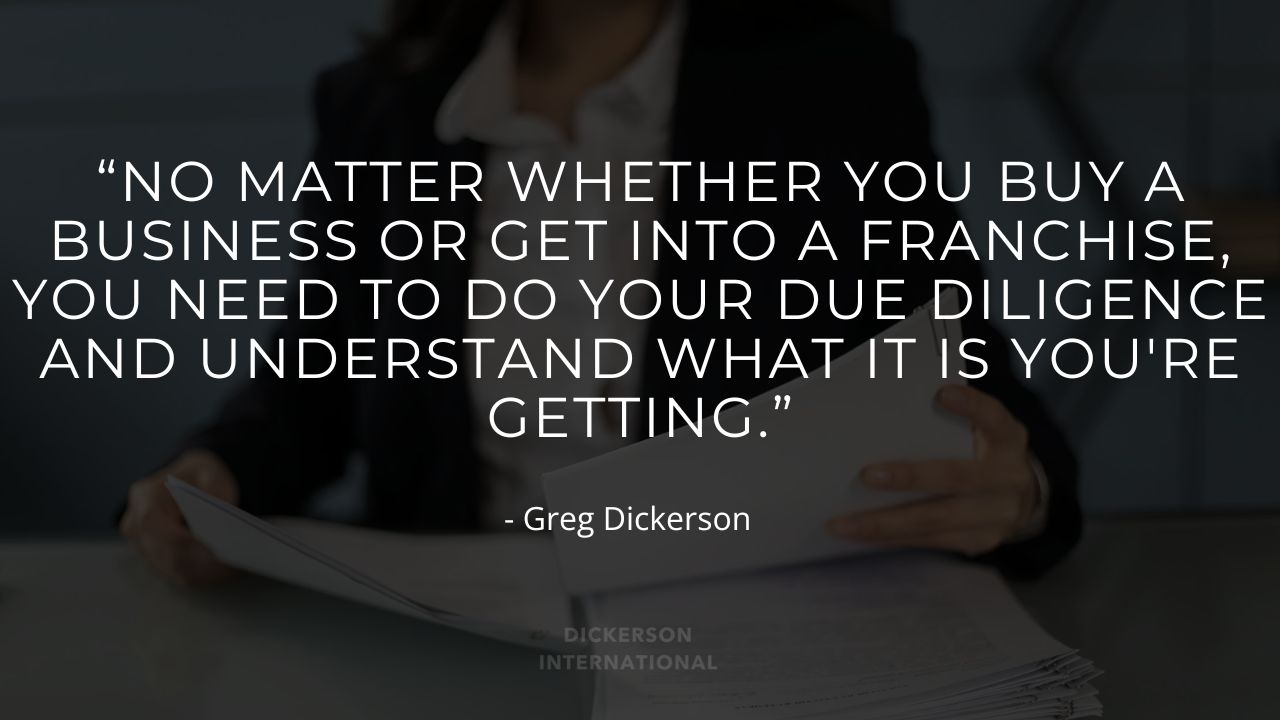Franchise vs. Business Ownership: Pros and Cons for Entrepreneurs
Whether you're a first-time entrepreneur, a corporate professional planning your exit from the daily grind, or someone exploring semi-passive income through business ownership, the choice between buying a franchise or acquiring an independent business is a major crossroads. Maybe you're craving more control over your future—or just tired of building someone else’s dream.
Before you invest time, energy, or capital into either path, it’s essential to understand the trade-offs. In this video, Greg Dickerson breaks down the key differences—offering straightforward advice rooted in real-world experience.
Buying a Franchise vs. Buying a Business: What's the Difference?
When you buy a privately owned business, you're stepping into full control. You can run it your way, pivot as needed, and expand at your own pace and direction. This type of ownership comes with full autonomy but also full responsibility.
"When you buy an existing business directly from the owner...you call the shots."
On the other hand, buying a franchise means entering into a contractual relationship with a franchisor. You get a proven system, branding, and support—but you give up a significant level of control. The right decision is dependent on your goals and preferences.
The Franchise Agreement: Read It Carefully
One of the biggest pitfalls for new franchise owners is not fully understanding the franchise agreement. This legal document outlines everything you can and can't do with your business. Key restrictions typically include:
-
Royalties owed to the franchisor
-
Geographic limits on where you can operate or expand
-
What products or services you are allowed to offer
While it can be comforting to follow a step-by-step system, know that you're trading freedom for structure.
Popular Franchise Industries
Franchises are available in nearly every sector. Some of the hottest options right now include:
-
Food service (e.g., McDonald's, Burger King)
-
Janitorial and cleaning services
-
Home health care
-
Staffing and business consulting services
Each industry has its own pros and cons, but the same franchise principles apply across the board.
Owner-Operator Requirements
Many franchises aren't passive investments. In fact, some require your direct involvement on-site.
For example, Chick-fil-A isn't a true franchise in the traditional sense—it's more like a structured employment opportunity. Franchisees are often expected to manage daily operations themselves, which may not align with the goals of investors who want to stay hands-off or scale multiple businesses.
Legal and Financial Due Diligence
Whether you're buying a franchise or a privately-owned business, due diligence is non-negotiable. Before signing anything:
-
Have a franchise attorney review all franchise agreements
-
Vet the business's financial records and contracts
-
Understand any limitations on owning or operating other businesses concurrently
"Buyer beware" applies in both scenarios. Know what you're committing to before you write a check or sign a deal.

Final Thoughts: Which Is Right for You?
Choosing between buying a franchise and acquiring an independent business boils down to your personal goals and operating style. If you want the freedom to innovate, a private business may be the better fit. If you're looking for structure and support, a franchise could work—as long as you're willing to follow the rules.
Want to learn more? Get your step-by-step BLUEPRINT to a Real Estate Wealth-Building Machine—no experience needed!
